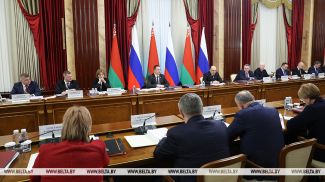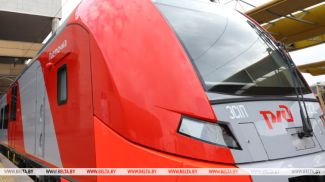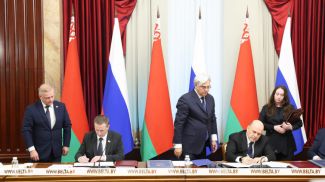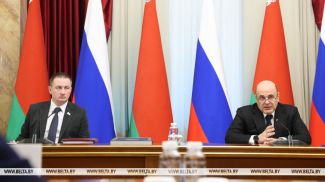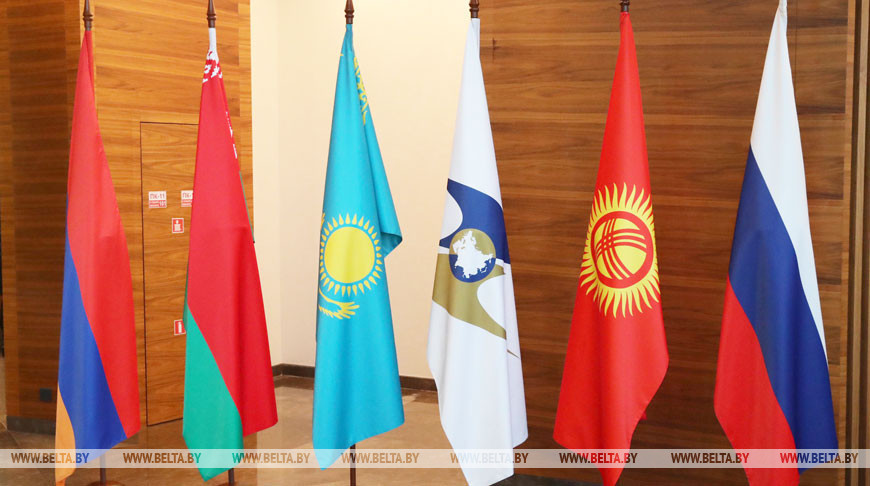
MOSCOW, 7 March (BelTA) - Iran is joining the Eurasian Agroexpress project of the Eurasian Economic Union, BelTA learned from the press service of the Eurasian Economic Commission.
"In the course of work on the free trade zone between the Eurasian Economic Union and the Islamic Republic of Iran, we agreed on many things and we are now putting all our agreements into practice," Member of the Board (Minister) for Trade of the Eurasian Economic Commission Andrei Slepnev said at a meeting with the Iranian side on the Eurasian Agroexpress project in Moscow.
In this regard, he recalled that the parties discussed, in particular, the supplies of EAEU products to Iran and the organization of large-scale shipments of Iranian vegetables and fruits to the market of the five countries. Relevant products are on sale today. However, with the involvement of the Eurasian Agroexpress, agricultural products will be delivered more quickly, with better quality and fewer intermediaries, the minister said.
"We offer you cooperation with a large Iranian holding company which can either directly enter the project or act as a 'one-stop-shop' for organizing the supplies of your agricultural products to Iran and exporting our products in the opposite direction," Iran's First Deputy Agriculture Minister Alireza Peyman-Pak said.
As a result of the meeting, the parties agreed to continue working delegating the discussion of the specific format and details of cooperation to the Directorate of the Eurasian Agroexpress project - Eurasian Agrologistics and the Iranian company.
"At the same time, we understand that, in addition to logistics, there are other issues that need to be addressed. These are mutual settlements, veterinary and phytosanitary control, transit through Iran towards the Persian Gulf countries and India," Andrei Slepnev also noted.
Eurasian Agroexpress, a joint project of the EAEU member states on accelerated rail and multimodal transportation of agricultural products and food between Asian and European countries, was supported by the Eurasian Intergovernmental Council on 25 February 2022. By the resolution of the Intergovernmental Council of 3 February 2023, the project was scaled up to match the routes of the North-South corridor.
"In the course of work on the free trade zone between the Eurasian Economic Union and the Islamic Republic of Iran, we agreed on many things and we are now putting all our agreements into practice," Member of the Board (Minister) for Trade of the Eurasian Economic Commission Andrei Slepnev said at a meeting with the Iranian side on the Eurasian Agroexpress project in Moscow.
In this regard, he recalled that the parties discussed, in particular, the supplies of EAEU products to Iran and the organization of large-scale shipments of Iranian vegetables and fruits to the market of the five countries. Relevant products are on sale today. However, with the involvement of the Eurasian Agroexpress, agricultural products will be delivered more quickly, with better quality and fewer intermediaries, the minister said.
"We offer you cooperation with a large Iranian holding company which can either directly enter the project or act as a 'one-stop-shop' for organizing the supplies of your agricultural products to Iran and exporting our products in the opposite direction," Iran's First Deputy Agriculture Minister Alireza Peyman-Pak said.
As a result of the meeting, the parties agreed to continue working delegating the discussion of the specific format and details of cooperation to the Directorate of the Eurasian Agroexpress project - Eurasian Agrologistics and the Iranian company.
"At the same time, we understand that, in addition to logistics, there are other issues that need to be addressed. These are mutual settlements, veterinary and phytosanitary control, transit through Iran towards the Persian Gulf countries and India," Andrei Slepnev also noted.
Eurasian Agroexpress, a joint project of the EAEU member states on accelerated rail and multimodal transportation of agricultural products and food between Asian and European countries, was supported by the Eurasian Intergovernmental Council on 25 February 2022. By the resolution of the Intergovernmental Council of 3 February 2023, the project was scaled up to match the routes of the North-South corridor.




